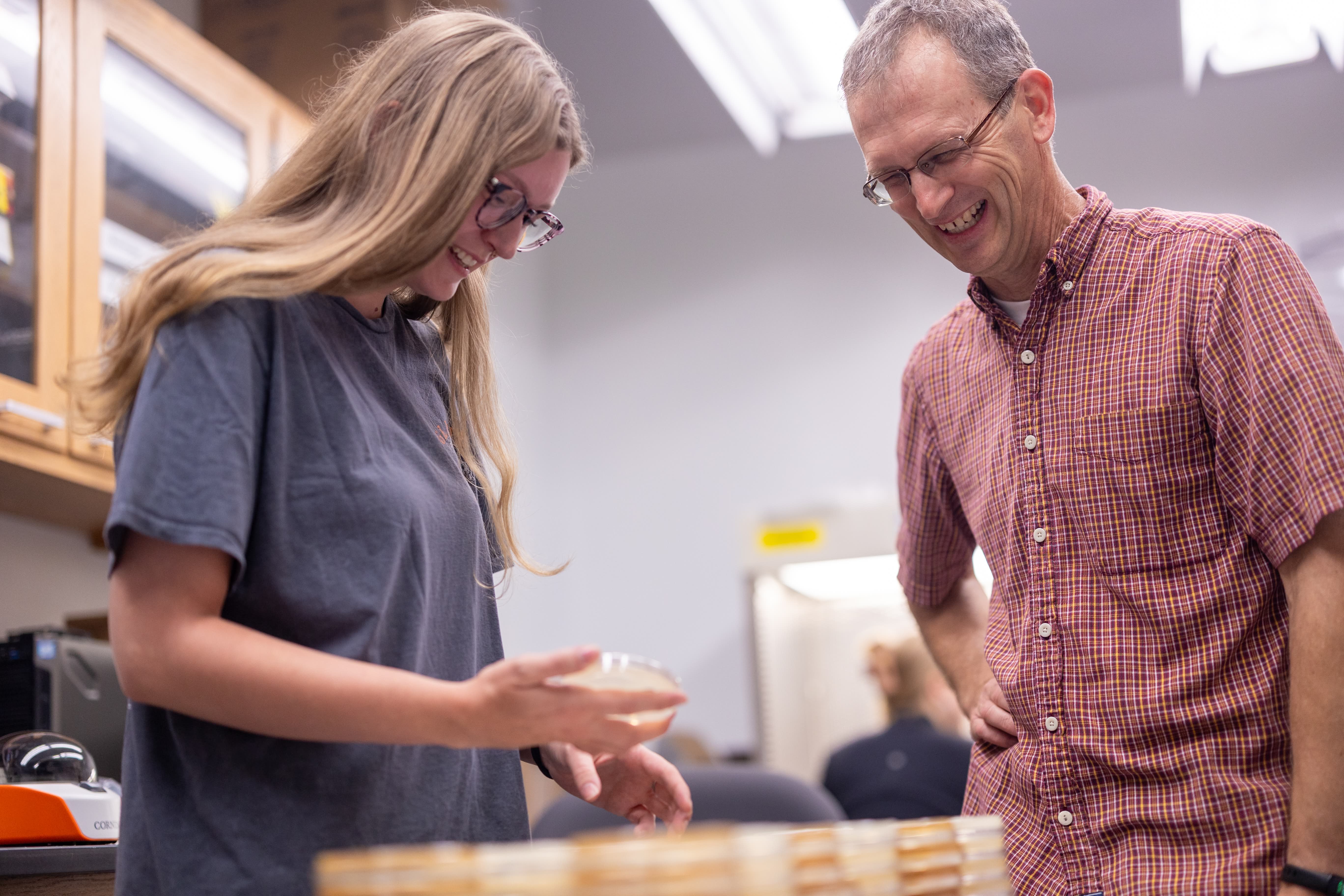Search
Browse All USCA.edu
Hancock Lab awarded major grant for scientific research and student engagement

The Hancock Lab in the University of South Carolina Aiken’s College of Sciences and Engineering has received a significant boost in research funding to support lab work and student training in cutting-edge plant biotechnology.
Awarded by the National Science Foundation, the grant will provide $451,139 over three years to advance research in plant genome engineering. The goal is to develop innovative tools that can be leveraged to create improved rice, soybean and maize.
“The main goal of the project is to create tools that help develop better crop varieties,” said Dr. Nathan Hancock, professor of biology at USCA. “This technology could benefit agriculture by producing DNA modification to plants without using foreign DNA.”
The funding will directly support lab research, the purchase of essential materials, and the hiring of undergraduate and post-baccalaureate students for hands-on experience. “We plan to bring on post-baccalaureate students for year-long lab positions to help prepare them for real-world scientific careers,” Hancock said. “The most important part of this grant is training the next generation of scientists.”
For decades, crop improvement relied heavily on traditional plant breeding to enhance traits like disease resistance. More recently, transgenic methods, where DNA from other species is inserted into crops, have led to major advances, such as pest- and herbicide-resistant corn and soybeans. These technologies have significantly increased agricultural productivity in the U.S.
However, developing transgenic crops is costly, time-consuming, and heavily regulated. The approval process can take nearly a decade, and there is ongoing public concern around genetically modified organisms (GMOs), particularly those involving foreign DNA.
To address these challenges, Dr. Hancock and his collaborator, Dr. Keith Slotkin, professor of biological sciences at the Donald Danforth Plant Sciences Center, are pursuing an intragenic approach. Instead of adding genes from other species, they modify or combine existing DNA elements from within the same plant species. This approach retains the benefits of genetic modification while minimizing regulatory hurdles and increasing public acceptance.
“That means we can get better crops to farmers faster, strengthening food security and supporting the bioeconomy,” Hancock explained.
The project is already having an impact on students. Gabby Peak, a senior biology major at USCA, has been working in the lab and says the experience has been both valuable and inspiring.
“It’s been easy to pick up because everyone in the lab is so helpful, and the techniques aren’t too hard to understand,” Peak said. “As long as you have some guidance, it’s actually fun to learn.”
She added that the hands-on experience has deepened her interest in research and will help prepare her for future lab-based work in the sciences.
ust last year, Hancock coauthored a paper published in Nature titled “Transposase-assisted target-site integration for efficient plant genome engineering.” Nature is one of the oldest and most prestigious scientific journals publishing the world’s most impactful scientific research.
For more information, contact us at news@usca.edu.